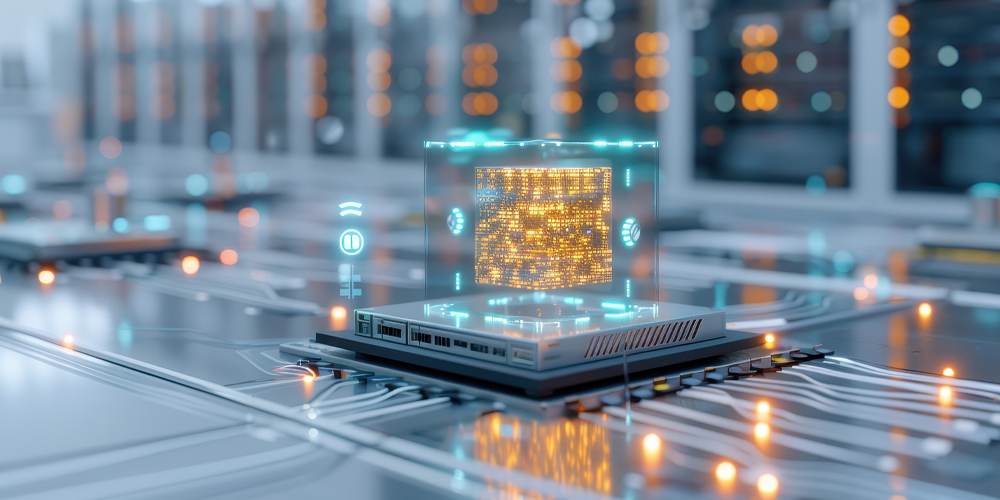The Future of Artificial Intelligence: Innovations and Ethical Considerations
Artificial Intelligence (AI) is transforming our world at an unprecedented pace. From enhancing everyday convenience through smart devices to revolutionizing industries such as healthcare, finance, and transportation, AI is shaping our future in profound ways. This article explores the latest innovations in AI, the potential benefits, and the ethical considerations that accompany these advancements.
Introduction to Artificial Intelligence
AI refers to the simulation of human intelligence processes by machines, particularly computer systems. These processes include learning, reasoning, problem-solving, and understanding natural language. As AI technologies continue to evolve, they are increasingly capable of performing tasks that were once thought to require human intelligence. The rapid advancements in AI are reshaping how we interact with technology and each other, leading us to question not only the capabilities of these systems but also the implications they have on society.
Current Innovations in AI
1. Natural Language Processing (NLP)
Natural Language Processing enables machines to understand and interpret human language. Innovations in NLP have led to the development of advanced chatbots, virtual assistants, and translation services. Tools like GPT-4 demonstrate how far NLP has come, enabling more natural interactions between humans and machines. With applications ranging from customer support to content creation, NLP technologies are increasingly integrated into our daily lives, making communication with machines smoother and more intuitive.
2. Machine Learning and Deep Learning
Machine Learning (ML), a subset of AI, allows systems to learn from data without explicit programming. Deep Learning (DL), a further subset, utilizes neural networks to analyze vast amounts of data. These technologies power applications ranging from image recognition to personalized recommendations in e-commerce. Companies like Netflix and Amazon leverage ML algorithms to analyze user behavior and deliver tailored content, enhancing user experience and driving engagement.

3. Robotics and Automation
Robotics, combined with AI, has transformed industries such as manufacturing and logistics. Robots equipped with AI can perform complex tasks, improve efficiency, and reduce human error. For instance, in automotive manufacturing, robots are used for assembling parts with precision and speed that far exceeds human capabilities. The integration of AI in robotics also paves the way for autonomous vehicles and drones, which promise to change how we transport goods and travel.
4. AI in Healthcare
AI is revolutionizing healthcare through predictive analytics, personalized medicine, and improved diagnostics. Machine learning algorithms can analyze medical images and patient data to assist doctors in making faster, more accurate decisions. For example, AI systems are now capable of detecting diseases such as cancer in radiology images with a level of accuracy comparable to, and sometimes surpassing, human radiologists. This capability not only enhances diagnostic processes but also holds the potential to save lives through early detection.
5. AI and Big Data
The intersection of AI and Big Data allows organizations to extract meaningful insights from large datasets. AI tools can identify patterns and trends, helping businesses make informed decisions and drive innovation. In finance, for instance, AI algorithms analyze market data to predict stock trends, enabling traders to make more strategic investments. This synergy between AI and Big Data is creating new opportunities across various sectors, leading to smarter business practices and enhanced operational efficiency.
Ethical Considerations in AI Development
As AI technologies advance, ethical considerations become increasingly critical. Here are some of the main concerns that arise with the development and deployment of AI systems:
1. Bias and Fairness
AI systems can inadvertently perpetuate biases present in their training data. For example, facial recognition technologies have been criticized for their inaccuracies, particularly regarding individuals from underrepresented ethnic groups. This issue underscores the necessity for diverse datasets and inclusive development practices. Addressing bias in AI requires ongoing monitoring, evaluation, and improvement to ensure that algorithms are fair and equitable, reflecting the diversity of the society they serve.
2. Privacy Concerns
As AI technologies collect and analyze vast amounts of personal data, privacy concerns become paramount. The deployment of AI in surveillance systems raises significant questions about individual rights and freedoms. Striking a balance between leveraging data for innovation and protecting privacy rights is crucial. Regulations such as the General Data Protection Regulation (GDPR) in Europe aim to provide frameworks for responsible data use, but the global nature of data flow complicates enforcement and compliance.
3. Job Displacement
The rise of AI and automation raises concerns about job displacement. While AI can create new job opportunities, it may also render certain jobs obsolete. For instance, as autonomous vehicles become more prevalent, jobs in transportation may face significant disruption. Preparing the workforce for this transition is essential to mitigate the impact on employment. This includes reskilling initiatives and promoting education in fields less likely to be automated, such as creative industries and complex problem-solving roles.
4. Accountability and Transparency
As AI systems make decisions that affect people’s lives, questions of accountability arise. Who is responsible when an AI system makes an error? Establishing clear guidelines and ensuring transparency in AI decision-making processes are vital for building trust. Developing explainable AI—where algorithms can provide insights into their decision-making processes—can help stakeholders understand and trust the technology.

The Future of AI: Opportunities and Challenges
The future of AI holds immense potential, but it also presents various challenges that need to be addressed:
1. Enhanced Collaboration Between Humans and AI
The future of AI lies in collaboration, where humans and machines work together to achieve better outcomes. AI can augment human capabilities, enabling us to tackle complex problems more efficiently. For example, in creative fields like design and content creation, AI tools can assist in generating ideas, allowing human creators to focus on refining and implementing those ideas. This collaboration can lead to innovations that neither humans nor machines could achieve alone.
2. AI in Education
AI has the potential to transform education through personalized learning experiences. Adaptive learning technologies can cater to individual student needs, fostering a more effective educational environment. AI-driven tools can analyze student performance in real-time, providing insights that help educators tailor their teaching methods. By identifying learning gaps and strengths, AI can facilitate a more customized approach to education, ultimately enhancing student outcomes.
3. Global Impact of AI
AI holds promise for addressing global challenges, including climate change, healthcare access, and poverty. For instance, AI technologies can optimize energy usage in smart grids, contributing to sustainability efforts. In healthcare, AI can help distribute resources effectively, ensuring that underserved populations receive adequate care. By harnessing AI technologies, we can develop innovative solutions to some of the world’s most pressing issues, creating a more equitable future for all.
Conclusion
The future of artificial intelligence is filled with both opportunities and ethical considerations. As we continue to innovate, it is crucial to approach AI development responsibly, ensuring that technology serves humanity in equitable and beneficial ways. By addressing the ethical implications of AI, we can unlock its full potential while safeguarding our values and rights. The dialogue surrounding AI’s future must include voices from diverse backgrounds to create solutions that reflect the needs and aspirations of society as a whole.
As we stand on the brink of a new era defined by AI, the choices we make today will shape the technological landscape for generations to come. Embracing the innovations while vigilantly addressing ethical concerns will enable us to harness AI for the greater good.


